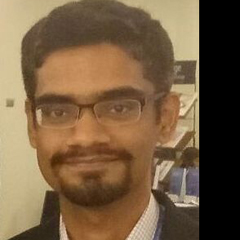In Kerala, COVID brings varsities, industries & government to co-create innovations

Mail This Article
During this unprecedented, world-altering pandemic, people world-wide look to their governments to bring back some semblance of normalcy from the chaos around them.
The Kerala government has risen to the occasion magnificently and its effort, to tackle the COVID-19 pandemic, has received global attention.
Recently, The Guardian, a leading UK newspaper, called Kerala's Health Minister K K Shylaja a 'Rock star' and 'Coronavirus slayer' thus acknowledging the state government's strategies at containing the pandemic.
In addition to the proven quality of the health infrastructure and strong local self-government, technological innovations are also playing a crucial role in Kerala's COVID-19 fight.
We are observing a multi-faceted, interdisciplinary approach contributing to the development of these innovations, which are led on the technology side by engineering colleges, start-ups, and government research labs.
Medical or hospital-care innovations
Majority of the technological innovations have come in this category, with the Sree Chitra Thirunal Institute of Medical Sciences and Technology (SCTIMST) themselves developing innovations such as disinfection gateways, COVID-19 examination booths, testing kits and hand-held ventilator.
Another government research organization, Naval Physical and Oceanographic Laboratory (NPOL), Kochi, has developed UV-based disinfectant equipment, which is used in the Cochin International Airport (CIAL) to sterilize luggage, passport and other equipment used by the passengers.
Engineering college students have also pitched in their efforts in this regard. Government Engineering College, Wayanad has designed a Walking Sample Collection Kiosk (WISK) on wheels that can be used to collect swab samples from suspected COVID patients from their premises.
National Institute of Technology, Calicut, has developed reusable aerosol boxes for doctors and non-invasive emergency ventilator with exhale disinfector for hospitals. Start-ups like Asimov Robotics have developed robots that can be deployed in isolation wards for dispensing food, medicines and collecting trash from patients without any human intervention.
Innovations to support government
A crowdsourced innovation led by volunteers, Coronasafe Network, has brought together government, health staff, industry professionals and volunteers on a public online platform for developing a 'war strategy' to combat COVID-19. It also provides authentic information about COVID-19 precautions and tools.
QKopy, a mass broadcasting service provider based at Kozhikode has developed an application GoK-Direct which helps in real-time communication between government and public. TraceC is another application developed by Phaethon Technologies that was utilised by the district administration of Ernakulam to prepare the complete route map of a person along with details on time spent at various places.
New products/services for a COVID world
Social distancing and no-touch techniques are characteristic features of the COVID world. We have seen start-ups developing products and services to cater to this new social reality. For instance, QuikDr has developed a mobile application that helps Keralites across the globe to avail free medical advice and consultation over video conferencing from the best doctors in the state.
To meet social distancing and hygiene norms, a NIT Calicut incubated start-up has developed Leg Operated Water Taps (LOWT) and installed it in various public places.
Safegad a company focusing on safety gadgets has come up with a keychain tool to avoid contact with potentially infected surfaces.
Hypergo, based at Ernakulam, are focusing on contactless delivery of medicines, groceries and other supplies at the doorstep.
What's needed next?
Patient-care related innovations like testing kits and ventilators are awaiting medical approvals, and need to adhere to medical quality standards like FDA or CE certification before they can be used at a large scale.
Research labs like SCTIMST have a long history of developing medical products that meet such standards and in subsequent technology commercialization, such as blood bag, heart valve, oxygenator etc.
We need universities in Kerala to develop similar expertise. Also, for mass manufacturing of the medical products, technology commercialization partners are needed and Kerala start-ups need to step-up to fill this gap. One such collaboration is shaping up between SCTIMST and Agappe Diagnostics Ltd for the commercialization of RNA extraction kit.
More such technology commercialization partnerships are needed to scale up the products being developed for COVID-19.
COVID-19 has reshaped personal behaviour and customer expectations in a massive way.
For instance, we have adopted communication tools like Zoom, and work-from-home practices have called for digital transformation of multiple sectors.
As highlighted above, we are seeing some innovations for the COVID world being developed from Kerala, but given the massive digital transformation and lifestyle changes happening, we need to accelerate the pace of such innovation not just in quantity, but also in quality and scale to be globally competitive.
COVID-19 has brought together universities, industries and government to co-create innovations in Kerala.
This is a stepping stone in the direction of collaborative projects where, we could have basic research and initial prototyping done at universities or research labs, which are then commercialized through university spin-outs or start-ups, and the government facilitates the creation of an ecosystem that supports this.
(The author is a lecturer at the Strathclyde Business School in Glasgow in the United Kingdom. He can be reached at sreevas.sahasranamam@strath.ac.uk & https://www.linkedin.com/in/sreevassahasranamam/. Sahil Sameer assisted in the research for this piece.)


